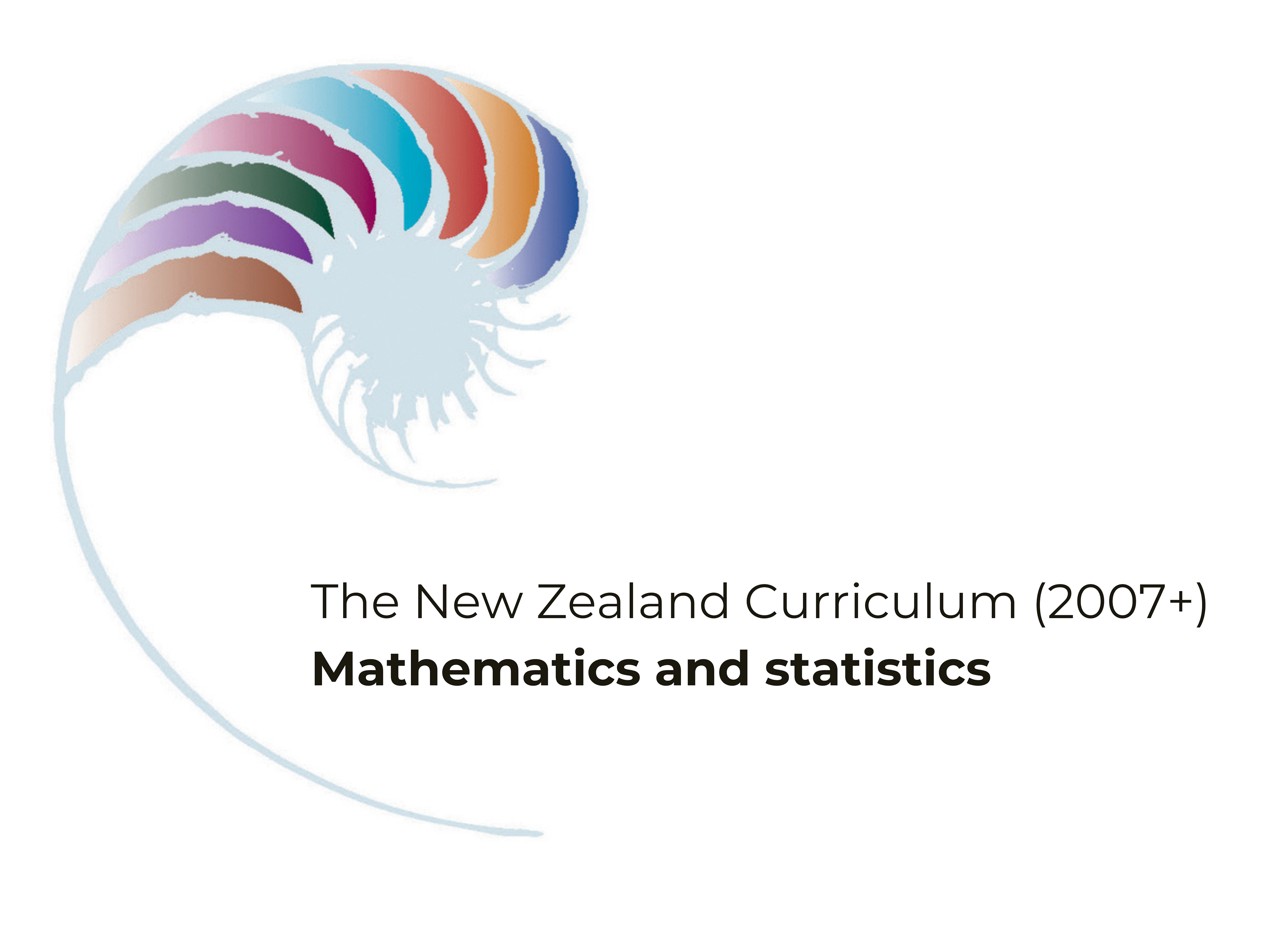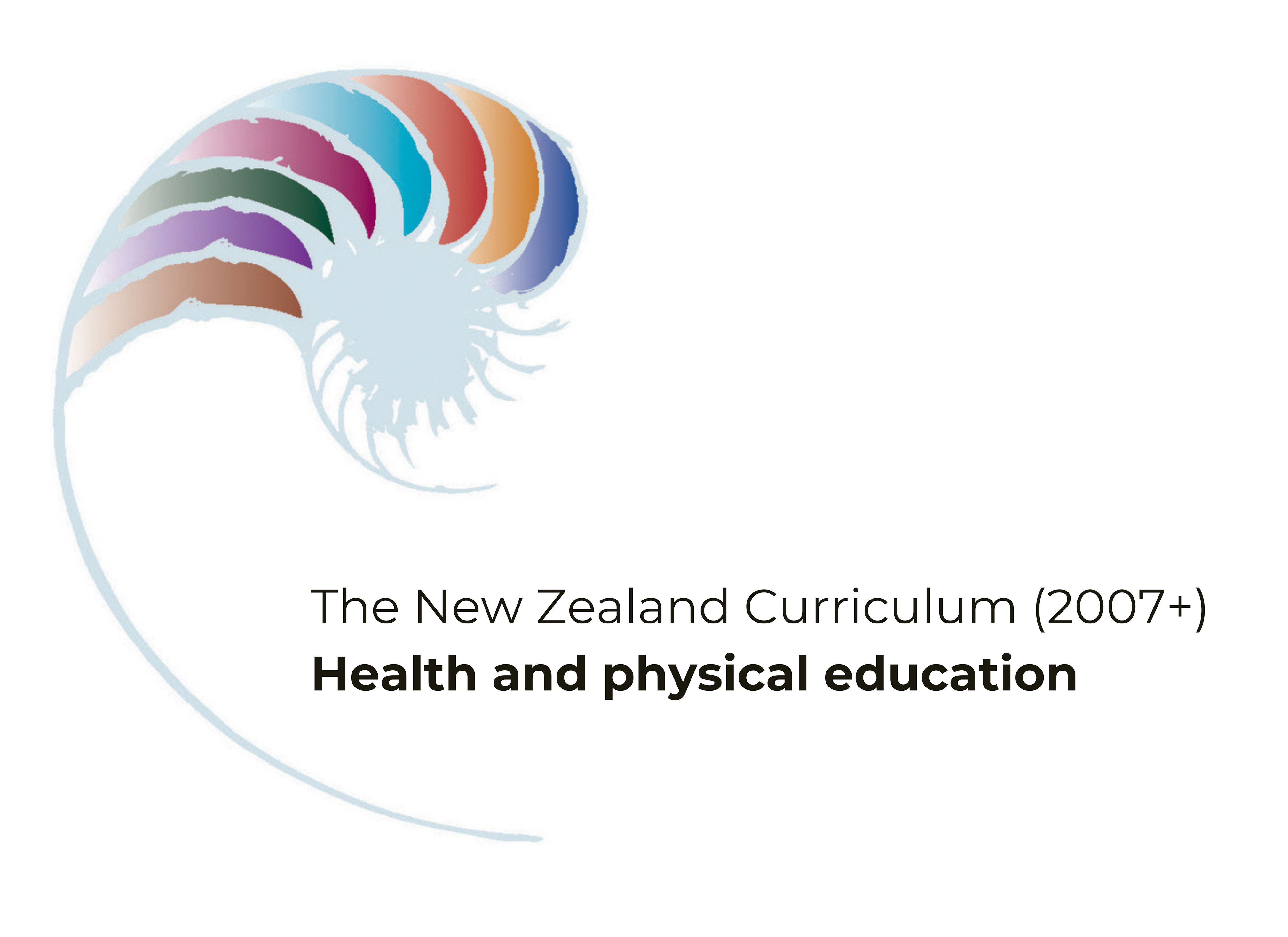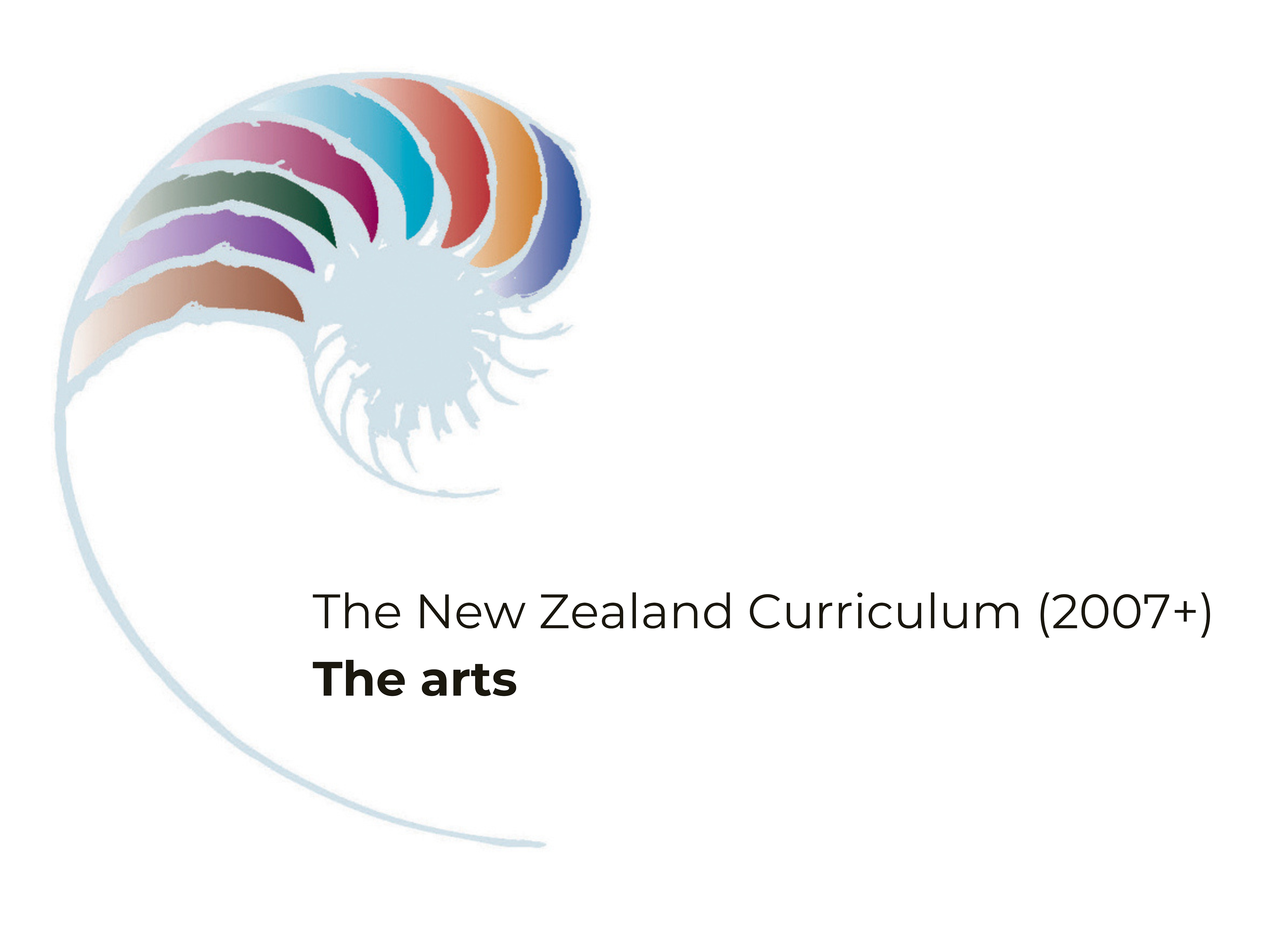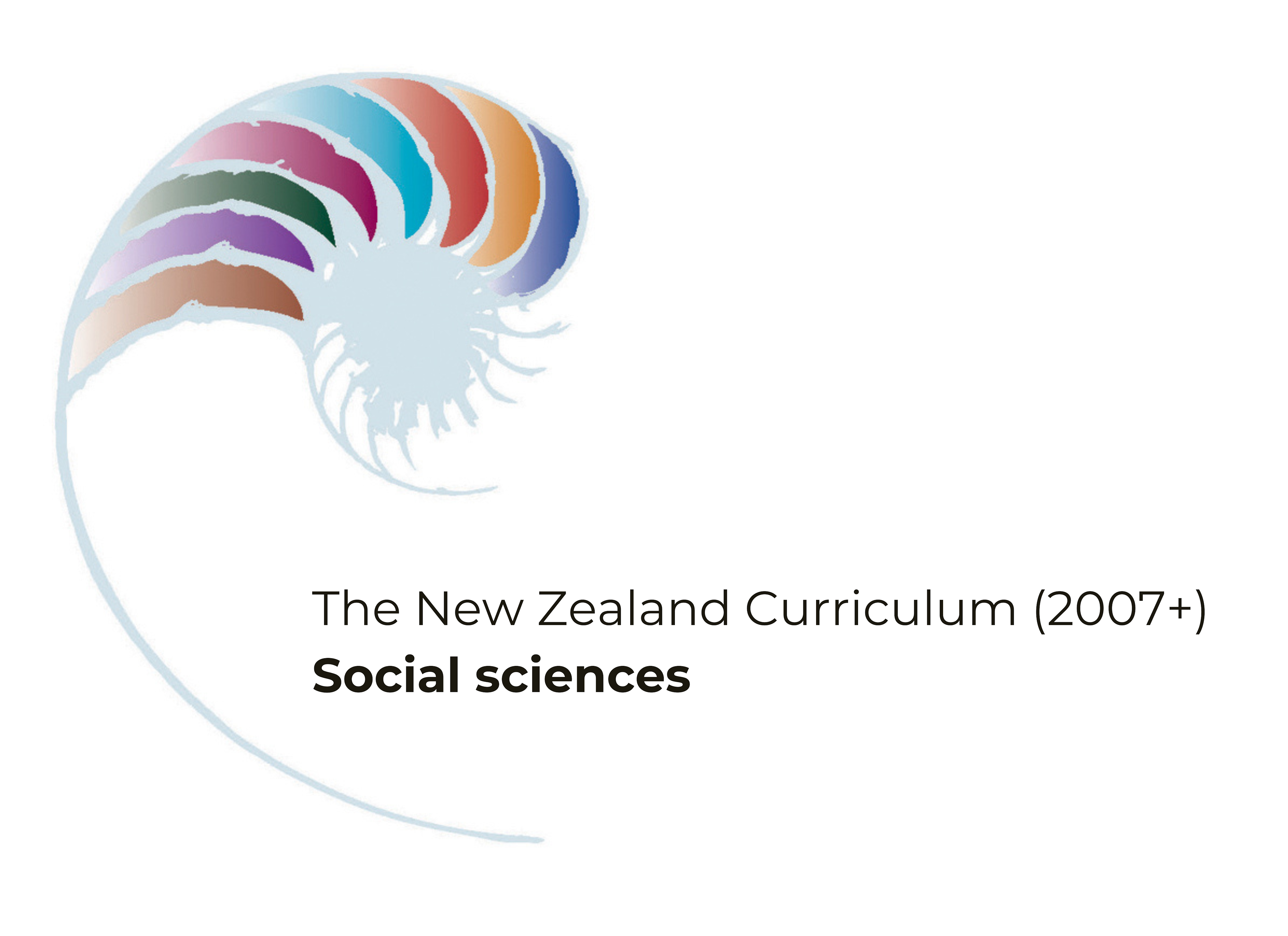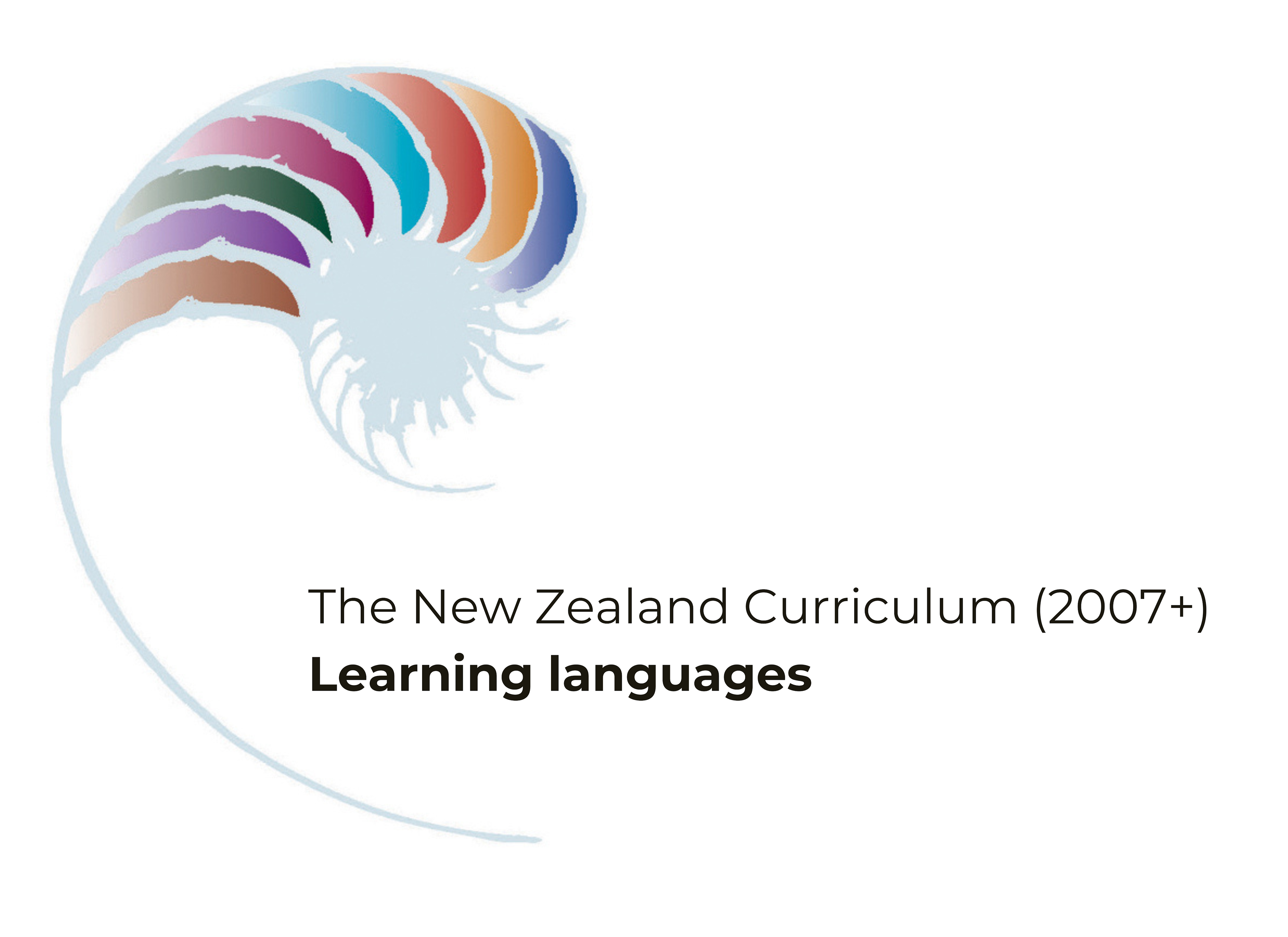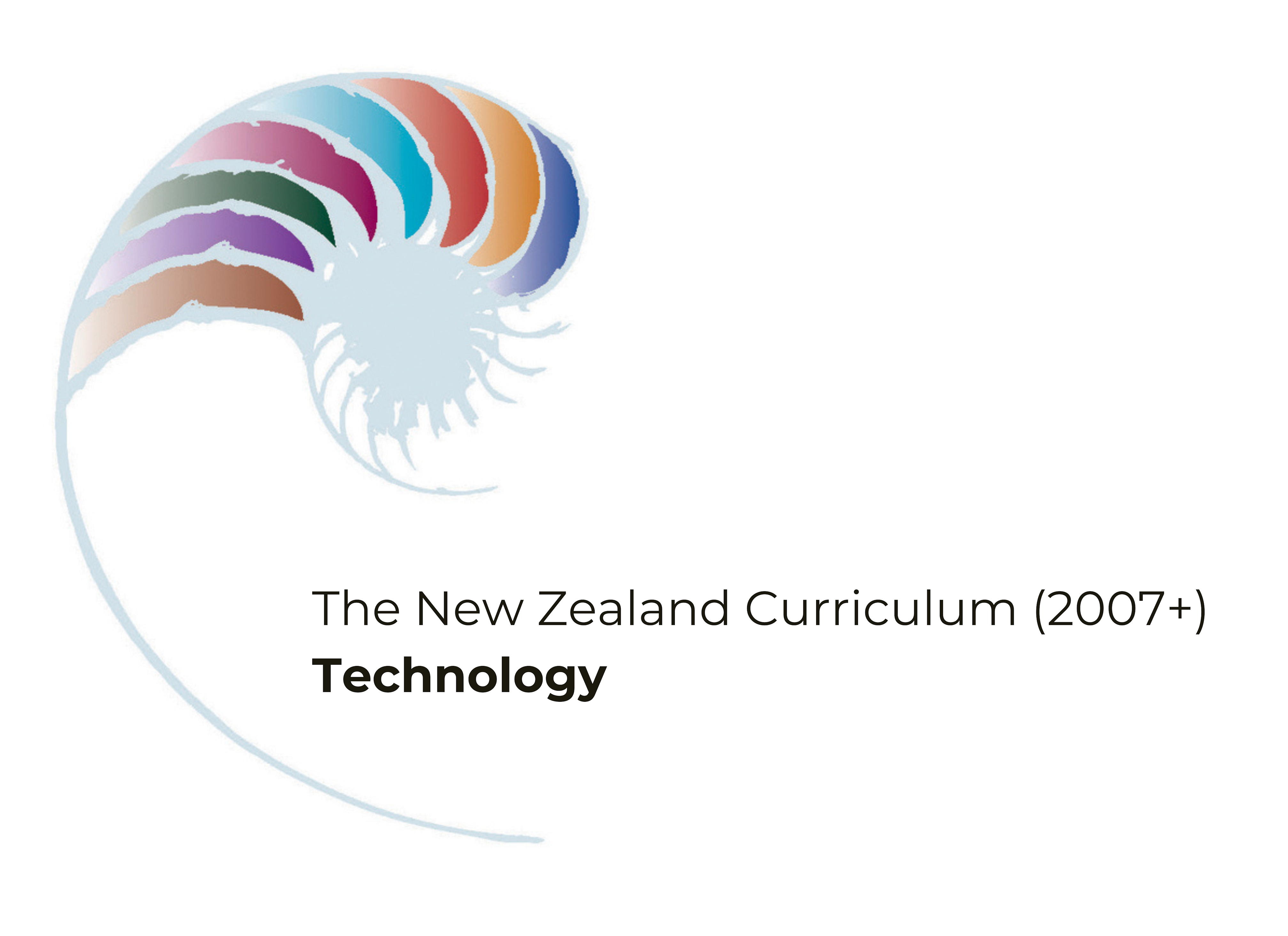The New Zealand Curriculum - Science
Statement of official policy relating to teaching, learning and assessment of science in all English medium state and state-integrated schools in New Zealand.

About this resource
Science is one of the learning areas in the New Zealand Curriculum, the official document that sets the direction for teaching, learning, and assessment in all English medium state and state-integrated schools in New Zealand. In science, students explore how both the natural physical world and science itself work so that they can participate as critical, informed, and responsible citizens in a society in which science plays a significant role.
The New Zealand Curriculum - Science
What is science about?
Mā te whakaaro nui e hanga te whare;
mā te mātauranga e whakaū.
Big ideas create the house;
knowledge maintains it.
Science is a way of investigating, understanding, and explaining our natural, physical world and the wider universe. It involves generating and testing ideas, gathering evidence – including by making observations, carrying out investigations and modelling, and communicating and debating with others – in order to develop scientific knowledge, understanding, and explanations. Scientific progress comes from logical, systematic work and from creative insight, built on a foundation of respect for evidence. Different cultures and periods of history have contributed to the development of science.
- Why study science?
- Learning area structure
- Achievement objectives
- Teaching time requirements
Nature of science
Understanding about science
Students will learn about science as a knowledge system: the features of scientific knowledge and the processes by which it is developed; and learn about the ways in which the work of scientists interacts with society.
Investigating in science
Students will carry out science investigations using a variety of approaches: classifying and identifying, pattern seeking, exploring, investigating models, fair testing, making things, or developing systems.
Communicating in science
Students will develop knowledge of the vocabulary, numeric and symbol systems, and conventions of science and use this knowledge to communicate about their own and others’ ideas.
Participating and contributing
Students will bring a scientific perspective to decisions and actions as appropriate.
Living world
Life processes
Students will understand the processes of life and appreciate the diversity of living things.
Ecology
Students will understand how living things interact with each other and with the non-living environment.
Evolution
Students will understand the processes that drive change in groups of living things over long periods of time and be able to discuss the implications of these changes.
Planet Earth and beyond
Earth systems
Students will investigate and understand the spheres of the Earth system: geosphere (land), hydrosphere (water), atmosphere (air), and biosphere (life).
Interacting systems
Students will investigate and understand that the geosphere, hydrosphere, atmosphere, and biosphere are connected via a complex web of processes.
Astronomical systems
Students will investigate and understand relationships between the Earth, Moon, Sun, solar system, and other systems in the universe.
Physical world
Physical inquiry and physics concepts
Students will explore and investigate physical phenomena in everyday situations.
Physical concepts
Students will gain an understanding of the interactions that take place between different parts of the physical world and the ways in which these interactions can be represented.
Using physics
Students will apply their understanding of physics to various applications.
Material world
Properties and changes of matter
Students will investigate the properties of materials.
The structure of matter
Students will:
- interpret their observations in terms of the particles (atoms, molecules, ions, and sub-atomic particles), structures, and interactions present
- understand and use fundamental concepts of chemistry.
Chemistry and society
Make connections between the concepts of chemistry and their applications and show an understanding of the role chemistry plays in the world around them.
Nature of science
Understanding about science
- Students will appreciate that scientists ask questions about our world that lead to investigations and that open-mindedness is important because there may be more than one explanation.
Investigating in science
- Students will extend their experiences and personal explanations of the natural world through exploration, play, asking questions, and discussing simple models.
Communicating in science
- Students will build their language and develop their understandings of the many ways the natural world can be represented.
Participating and contributing
- Students will explore and act on issues and questions that link their science learning to their daily living.
Living world
Life processes
- Students will recognise that all living things have certain requirements so they can stay alive.
Ecology
- Students will recognise that living things are suited to their particular habitat.
Evolution
Students will:
- recognise that there are lots of different living things in the world and that they can be grouped in different ways
- explain how we know that some living things from the past are now extinct.
Planet Earth and beyond
Earth systems
- Students will explore and describe natural features and resources.
Interacting systems
- Students will describe how natural features are changed and resources affected by natural events and human actions.
Astronomical systems
- Students will share ideas and observations about the Sun and the Moon and their physical effects on the heat and light available to Earth.
Physical world
Physical inquiry and physics concepts
Students will:
- explore everyday examples of physical phenomena, such as movement, forces, electricity and magnetism, light, sound, waves, and heat
- seek and describe simple patterns in physical phenomena.
Material world
Properties and changes of matter
- Students will observe, describe, and compare physical and chemical properties of common materials and changes that occur when materials are mixed, heated, or cooled.
Chemistry and society
- Students will find out about the uses of common materials and relate these to their observed properties.
Nature of science
Understanding about science
Students will:
- appreciate that science is a way of explaining the world and that science knowledge changes over time
- identify ways in which scientists work together and provide evidence to support their ideas.
Investigating in science
Students will:
- build on prior experiences, working together to share and examine their own and others’ knowledge
- ask questions, find evidence, explore simple models, and carry out appropriate investigations to develop simple explanations.
Communicating in science
Students will:
- begin to use a range of scientific symbols, conventions, and vocabulary
- engage with a range of science texts and begin to question the purposes for which these texts are constructed.
Participating and contributing
Students will:
- use their growing science knowledge when considering issues of concern to them
- explore various aspects of an issue and make decisions about possible actions.
Living world
Life processes
- Students will recognise that there are life processes common to all living things and that these occur in different ways.
Ecology
- Students will explain how living things are suited to their particular habitat and how they respond to environmental changes, both natural and human-induced.
Evolution
Students will:
- begin to group plants, animals, and other living things into science-based classifications
- explore how the groups of living things we have in the world have changed over long periods of time and appreciate that some living things in New Zealand are quite different from living things in other areas of the world.
Planet Earth and beyond
Earth systems
- Students will appreciate that water, air, rocks and soil, and life forms make up our planet and recognise that these are also Earth’s resources.
Interacting systems
- Students will investigate the water cycle and its effect on climate, landforms, and life.
Astronomical systems
- Students will investigate the components of the solar system, developing an appreciation of the distances between them.
Physical world
Physical inquiry and physics concepts
- Students will explore, describe, and represent patterns and trends for everyday examples of physical phenomena, such as movement, forces, electricity and magnetism, light, sound, waves, and heat. For example, identify and describe the effect of forces (contact and non-contact) on the motion of objects; identify and describe everyday examples of sources of energy, forms of energy, and energy transformations.
Material world
Properties and changes of matter
Students will:
- group materials in different ways, based on the observations and measurements of the characteristic chemical and physical properties of a range of different materials
- compare chemical and physical changes.
Chemistry and society
- Students will relate the observed characteristic chemical and physical properties of a range of different materials to technological uses and natural processes.
Nature of science
Understanding about science
Students will:
- appreciate that science is a way of explaining the world and that science knowledge changes over time
- identify ways in which scientists work together and provide evidence to support their ideas.
Investigating in science
Students will:
- build on prior experiences, working together to share and examine their own and others’ knowledge
- ask questions, find evidence, explore simple models, and carry out appropriate investigations to develop simple explanations.
Communicating in science
Students will:
- begin to use a range of scientific symbols, conventions, and vocabulary
- engage with a range of science texts and begin to question the purposes for which these texts are constructed.
Participating and contributing
Students will:
- use their growing science knowledge when considering issues of concern to them
- explore various aspects of an issue and make decisions about possible actions.
Living world
Life processes
Students will recognise that there are life processes common to all living things and that these occur in different ways.
Ecology
Students will explain how living things are suited to their particular habitat and how they respond to environmental changes, both natural and human-induced.
Evolution
Students will:
- begin to group plants, animals, and other living things into science-based classifications
- explore how the groups of living things we have in the world have changed over long periods of time and appreciate that some living things in New Zealand are quite different from living things in other areas of the world.
Planet Earth and beyond
Earth systems
Students will develop an understanding that water, air, rocks and soil, and life forms make up our planet and recognise that these are also Earth’s resources.
Interacting systems
- Students will investigate the water cycle and its effect on climate, landforms, and life.
Astronomical systems
Students will investigate the components of the solar system, developing an appreciation of the distances between them.
Physical world
Physical inquiry and physics concepts
- Students will explore, describe, and represent patterns and trends for everyday examples of physical phenomena, such as movement, forces, electricity and magnetism, light, sound, waves, and heat. For example, identify and describe the effect of forces (contact and non-contact) on the motion of objects; identify and describe everyday examples of sources of energy, forms of energy, and energy transformations.
Material world
Properties and changes of matter
Students will:
- group materials in different ways, based on the observations and measurements of the characteristic chemical and physical properties of a range of different materials
- compare chemical and physical changes.
The structure of matter
- Students will begin to develop an understanding of the particle nature of matter and use this to explain observed changes.
Chemistry and society
- Students will relate the observed, characteristic chemical and physical properties of a range of different materials to technological uses and natural processes.
Nature of science
Understanding about science
Students will understand that scientists’ investigations are informed by current scientific theories and aim to collect evidence that will be interpreted through processes of logical argument.
Investigating in science
Students will:
- develop and carry out more complex investigations, including using models
- show an increasing awareness of the complexity of working scientifically, including recognition of multiple variables
- begin to evaluate the suitability of the investigative methods chosen.
Communicating in science
Students will:
- use a wider range of science vocabulary, symbols, and conventions
- apply their understandings of science to evaluate both popular and scientific texts (including visual and numerical literacy).
Participating and contributing
- Students will develop an understanding of socio-scientific issues by gathering relevant scientific information in order to draw evidence-based conclusions and to take action where appropriate.
Living world
Life processes
Students will:
- identify the key structural features and functions involved in the life processes of plants and animals
- describe the organisation of life at the cellular level.
Ecology
- Students will investigate the interdependence of living things (including humans) in an ecosystem.
Evolution
- Students will describe the basic processes by which genetic information is passed from one generation to the next.
Planet Earth and beyond
Earth systems
- Students will investigate the composition, structure, and features of the geosphere, hydrosphere, and atmosphere.
Interacting systems
- Students will investigate how heat from the Sun, the Earth, and human activities is distributed around Earth by the geosphere, hydrosphere, and atmosphere.
Astronomical systems
- Students will investigate the conditions on the planets and their moons, and the factors affecting them.
Physical world
Physical inquiry and physics concepts
- Students will identify and describe the patterns associated with physical phenomena found in simple everyday situations involving movement, forces, electricity and magnetism, light, sound, waves, and heat. For example, identify and describe energy changes and conservation of energy, simple electrical circuits, and the effect of contact and non-contact on the motion of objects.
Using physics
- Students will explore a technological or biological application of physics.
Material world
Properties and changes of matter
Students will:
- investigate the chemical and physical properties of different groups of substances, for example, acids and bases, fuels, and metals
- distinguish between pure substances and mixtures and between elements and compounds.
The structure of matter
Students will:
- describe the structure of the atoms of different elements
- distinguish between an element and a compound, a pure substance, and a mixture at the particle level.
Chemistry and society
- link the properties of different groups of substances to the way they are used in society or occur in nature.
Nature of science
Understanding about science
- Students will understand that scientists’ investigations are informed by current scientific theories and aim to collect evidence that will be interpreted through processes of logical argument.
Investigating in science
Students will:
- develop and carry out more complex investigations, including using models
- show an increasing awareness of the complexity of working scientifically, including recognition of multiple variables
- begin to evaluate the suitability of the investigative methods chosen.
Communicating in science
Students will:
- use a wider range of science vocabulary, symbols, and conventions
- apply their understandings of science to evaluate both popular and scientific texts (including visual and numerical literacy).
Participating and contributing
- Students will develop an understanding of socio-scientific issues by gathering relevant scientific information in order to draw evidence-based conclusions and to take action where appropriate.
Living world
Life processes
- Students will relate key structural features and functions to the life processes of plants, animals, and micro-organisms and investigate environmental factors that affect these processes.
Ecology
- Students will investigate the impact of natural events and human actions on a New Zealand ecosystem.
Evolution
Students will:
- explore patterns in the inheritance of genetically controlled characteristics
- explain the importance of variation within a changing environment.
Planet Earth and beyond
Earth systems
- Students will investigate the external and internal processes that shape and change the surface features of New Zealand.
Interacting systems
- Students will develop an understanding of how the geosphere, hydrosphere, atmosphere, and biosphere interact to cycle carbon around Earth.
Astronomical systems
- Students will investigate the interactions between the solar, lunar, and Earth cycles and the effect of these on Earth.
Physical world
Physical inquiry and physics concepts
Students will:
- investigate trends and relationships in physical phenomena (in the areas of mechanics, electricity, electromagnetism, heat, light and waves, and atomic and nuclear physics)
- demonstrate an understanding of physical phenomena and concepts by explaining and solving questions and problems that relate to straightforward situations.
Using physics
- Students will investigate how physics knowledge is used in a technological or biological application.
Material world
Properties and changes of matter
Students will:
- identify patterns and trends in the properties of a range of groups of substances, for example, acids and bases, metals, metal compounds, and hydrocarbons
- explore factors that affect chemical processes.
The structure of matter
Students will:
- distinguish between atoms, molecules, and ions (includes covalent and ionic bonding)
- link atomic structure to the organisation of the periodic table
- use particle theory to explain factors that affect chemical processes.
Chemistry and society
Students will investigate how chemical knowledge is used in a technological application of chemistry.
Nature of science
Understanding about science
Students will understand that scientists have an obligation to connect their new ideas to current and historical scientific knowledge and to present their findings for peer review and debate.
Investigating in science
Students will develop and carry out investigations that extend their science knowledge, including developing their understanding of the relationship between investigations and scientific theories and models.
Communicating in science
Students will use accepted science knowledge, vocabulary, symbols, and conventions when evaluating accounts of the natural world and consider the wider implications of the methods of communication and/or representation employed.
Participating and contributing
Students will use relevant information to develop a coherent understanding of socio-scientific issues that concern them to identify possible responses at both personal and societal levels.
Living world
Life processes
Students will explore the diverse ways in which animals and plants carry out the life processes.
Ecology
Students will explore ecological distribution patterns and explain possible causes for these patterns.
Evolution
Students will understand that DNA and the environment interact in gene expression.
Ecology and evolution
Students will explain how the interaction between ecological factors and natural selection leads to genetic changes within populations.
Planet Earth and beyond
Earth systems and interacting systems
Students will develop an understanding of the causes of natural hazards and their interactions with human activity on Earth.
Astronomical systems
Students will explain the nature and life cycles of different types of stars in terms of energy changes and time.
Physical world
Physical inquiry and physics concepts
Students will:
- investigate physical phenomena (in the areas of mechanics, electricity, electromagnetism, light and waves, and atomic and nuclear physics) and produce qualitative and quantitative explanations for a variety of unfamiliar situations
- analyse data to deduce complex trends and relationships in physical phenomena.
Using physics
Students will use physics ideas to explain a technological or biological application of physics.
Material world
Properties and changes of matter
Students will investigate and measure the chemical and physical properties of a range of groups of substances, for example, acids and bases, oxidants and reductants, and selected organic and inorganic compounds.
The structure of matter
Students will:
- relate properties of matter to structure and bonding
- develop an understanding of and use the fundamental concepts of chemistry (for example, equilibrium and thermochemical principles) to interpret observations.
Chemistry and society
Students will apply knowledge of chemistry to explain aspects of the natural world and how chemistry is used in society to meet needs, resolve issues, and develop new technologies.
Nature of science
Understanding about science
Students will understand that scientists have an obligation to connect their new ideas to current and historical scientific knowledge and to present their findings for peer review and debate.
Investigating in science
Students will develop and carry out investigations that extend their science knowledge, including developing their understanding of the relationship between investigations and scientific theories and models.
Communicating in science
- Students will use accepted science knowledge, vocabulary, symbols, and conventions when evaluating accounts of the natural world and consider the wider implications of the methods of communication and/or representation employed.
Participating and contributing
- Students will use relevant information to develop a coherent understanding of socio-scientific issues that concern them, to identify possible responses at both personal and societal levels.
Living world
Life processes, ecology, and evolution
Students will:
- understand the relationship between organisms and their environment
- explore the evolutionary processes that have resulted in the diversity of life on Earth and appreciate the place and impact of humans within these processes
- understand how humans manipulate the transfer of genetic information from one generation to the next and make informed judgements about the social, ethical, and biological implications relating to this manipulation.
Planet Earth and beyond
Earth systems and interacting systems
- Students will develop an in-depth understanding of the interrelationship between human activities and the geosphere, hydrosphere, atmosphere, and biosphere over time.
Astronomical systems
- Students will explore recent astronomical events or discoveries, showing an understanding of the concepts of distance and time.
Physical world
Physical inquiry and physics concepts
Students will:
- investigate physical phenomena (in the areas of mechanics, electricity, electromagnetism, light and waves, and atomic and nuclear physics) and produce qualitative and quantitative explanations for a variety of complex situations
- analyse and evaluate data to deduce complex trends and relationships in physical phenomena.
Using physics
- Students will use physics ideas to explain a technological, biological, or astronomical application of physics and discuss related issues.
Material world
Properties and changes of matter
- Students will investigate and measure the chemical and physical properties of a range of groups of substances, for example, acids and bases, oxidants and reductants, and selected organic and inorganic compounds.
The structure of matter
Students will:
- relate properties of matter to structure and bonding
- develop an understanding of and use the fundamental concepts of chemistry (for example, equilibrium and thermochemical principles) to interpret observations.
Chemistry and society
- Students will apply knowledge of chemistry to explain aspects of the natural world and how chemistry is used in society to meet needs, resolve issues, and develop new technologies.





